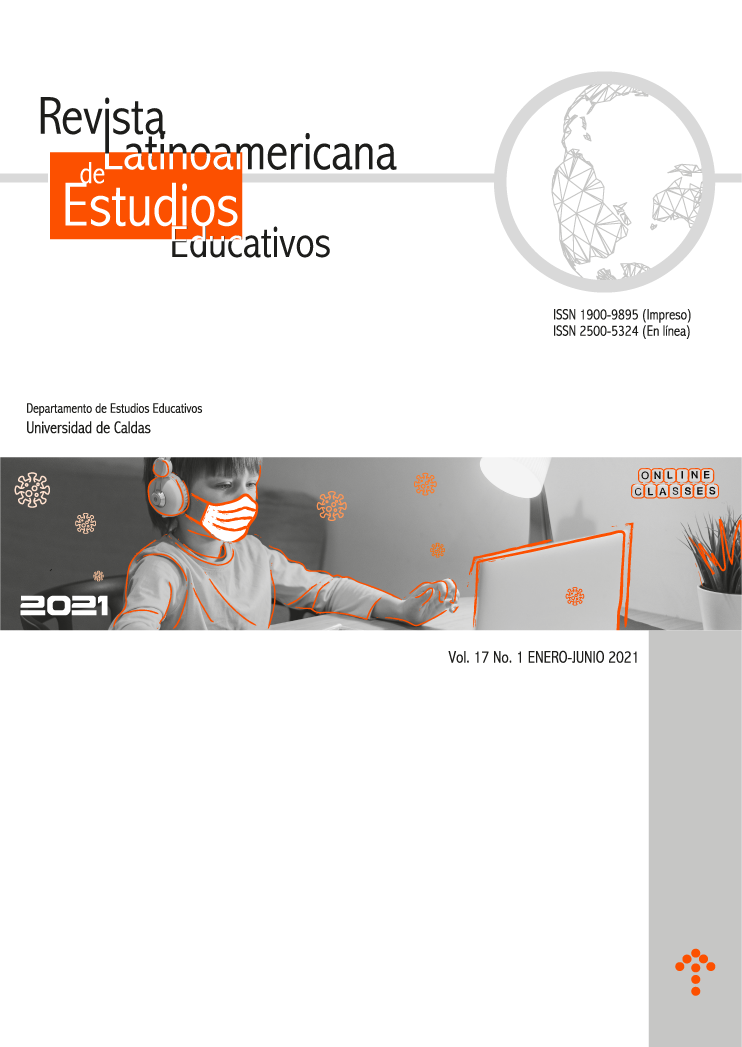Autores/as
Resumen
Los estudiantes de lenguas extranjeras de cualquier nivel de escolaridad deben ser agentes activos en su aprendizaje y desarrollar su competencia estratégica para ser
aprendices y hablantes competentes del idioma que aprenden, en este caso, inglés. Éste estudio investigó el efecto del entrenamiento de Estrategias Metacognitivas para planear, monitorear y evaluar en la habilidad oral y auditiva de un grupo de 42 estudiantes de nivel principiante de un colegio público quienes recibieron un ciclo de seis talleres de entrenamiento explícito de dichas estrategias, siguiendo las fases del enfoque CALLA (preparación, presentación, práctica, evaluación y expansión). Los resultados evidenciaron que dichas estrategias impactaron positivamente las habilidades de escucha y producción oral, favoreciendo el aprendizaje de nuevo vocabulario, mejorando las actitudes hacia las habilidades de habla y escucha, así como los sentimientos de éxito en el aprendizaje. Lo anterior implica que la instrucción directa de Estrategias Metacognitivas debe ser incorporada a las clases regulares de inglés para ayudar a los estudiantes a ser más auto-regulados.
Citas
https://doi.org/10.5402/2012/734085
Burns, A. (2001). Collaborative action research for english language teachers. Cambridge University Press.
Chamot, A. (2005). Language learning strategy instruction: current issues and research. Annual review of Applied Linguistics, 25, 112-130. https://doi.org/10.1017/
S0267190505000061
Chamot, A.U., Barnhardt, S., El Dinary, P., Carbonaro, G. & Robbins, J., (1993). Methods for teaching Learning strategies in the foreign language classroom and Assessment of Language skills for instruction. Final report. Georgetown University. https://files.eric.ed.gov/fulltext/ED365157.pdf
Cohen, A. D. (1996). Second language learning and use strategies: clarifying the issues. Center for Advanced Research on Language Acquisition University of Minnesota,
Minneapolis. Revised version.
Coşkun, A. (2010). The effect of metacognitive strategy training on the listening performance of beginner students. Novitas-ROYAL, 4(1), 35-50. https://eric.ed.gov/?id=ED509339
Diaz, I. (2015). Training in metacognitive strategies for students’ vocabulary improvement by using learning journals. Profile Issues in TeachersProfessional Development, 17(1), 87-102. http://dx.doi.org/10.15446/profile.v17n1.41632
Guapacha Chamorro, M. E., & Benavidez Paz, L. H. (2017). Improving language learning strategies and performance of pre-service language teachers through a CALLATBLT model. Profile Issues in TeachersProfessional Development,19(2), 101-120. http://dx.doi.org/10.15446/profile.v19n2.57581
Ismael, H. A., (2015). The role of metacognitive knowledge in enhancing learners autonomy. International journal of language and linguistics, 2(4), 95-102
James, C. J. (1985). The testing of proficiency in listening comprehension: guiding for teaching. In a meeting the call for excellence in the foreign language classroom and selected papers from the Central States Conference on the Teaching of Foreign Languages.(9 pages)
Lantolf, J. P. & Thorne, S. L. (2006). Sociocultural theory and second language learning. http://old.fltrp.com/download/07041802.pdf
Larsen-Freeman, D. and Anderson, M. (2011). Techniques and Principles in Language Teaching. (Third ed). Oxford.
Movahed, R. (2014). The effect of metacognitive strategy instruction on listening performance, metacognitive awareness and listening anxiety of beginner Iranian EFL
students. International Journal of English Linguistics, 88-99. http://dx.doi.org/10.5539/ijel.v4n2p88
Nunan, D. (1992). Research Methods in Language Learning. Cambridge UK: Cambridge University Press.
O’Malley, J. M., & Valdez-Pierce, L. V. (1996). Oral language assessment. In Authentic assessment for English language learners. Addison Wesley
O’Malley, J. M. & A. U. Chamot (1990). Learning strategies in second language acquisition. Cambridge University Press.
Rahimi, A. H., Birjandi, P. (2012). The effect of metacognitive strategy instruction on the listening performance of EFL students. In International Journal of Linguistics,4(2),495-517. https://doi.org/10.5296/ijl.v4i2.1707
Rahimi, M., Katal, M. (2013). The impact of metacognitive instruction on EFL learners’ listening comprehension and oral language proficiency.The Journal of Teaching
Language Skills, 5(2), 69-90. https://www.sid.ir/en/journal/ViewPaper.aspx?ID=489532
Rahimirad, M. (2014).The impact of metacognitive strategy instruction on the listening performance of university students. Procedia - Social and Behavioral Sciences 98, 1485 – 1491. https://doi.org/10.1016/j.sbspro.2014.03.569
Rashtchi, M., & Khani, P. (2010). Improving EFL learners’ oral proficiency through metacognitive strategy instruction. JELS, 1(4),137-156
Richards, J. C. (2005). Second thoughts on teaching listening. Regional Language Centre Journal, 36(1), 85-92.
Rost, M. (1994). Introducing listening. Penguin.
Trujillo, C. L., Álvarez, C. P., Zamudio, M. N. & Morales, G. (2015). Facilitating vocabulary learning through metacognitive strategy training and learning journals. Colombian applied linguistic journal,17(2),246-259.
Ur, P. (2013). A course in english language teaching. (First South Asian edition). Cambridge University Press.
Vandergrift, L. (2003). Orchestrating strategy use: towards a model of the skilled L2 listener. Language Learning, 53, 461–494. http://dx.doi.org/10.1111/1467-9922.00232
Wenden, A. L. (1998). Metacognitive knowledge and language learning. Applied linguistics,19(4), 515-537. https://doi.org/10.1093/applin/19.4.515

 PDF
PDF
 FLIP
FLIP

























